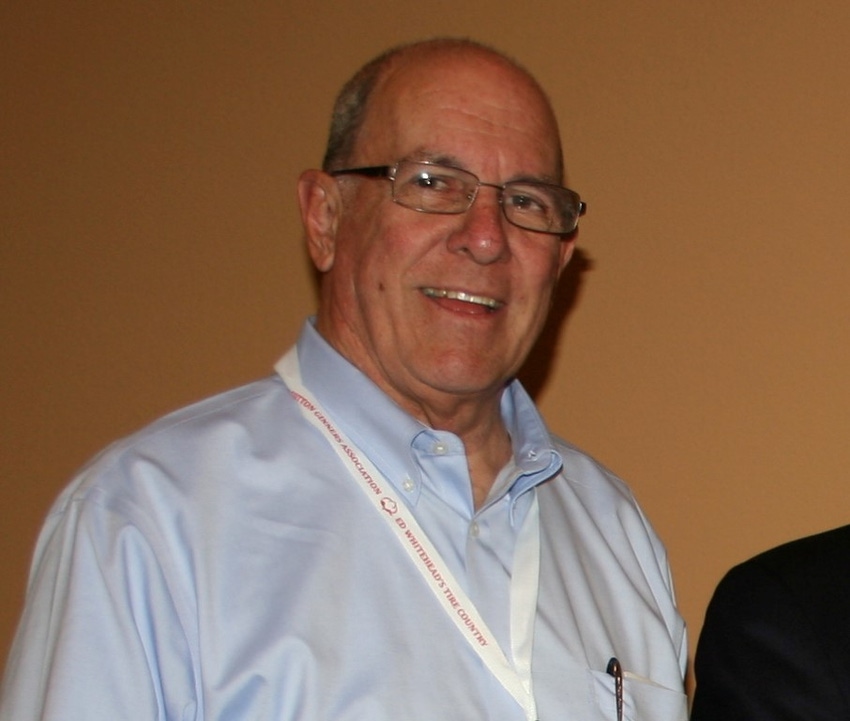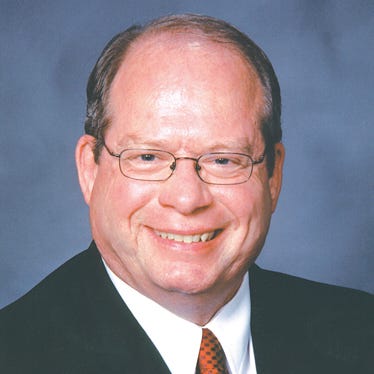
Arizona agriculture has lost a great leader and stalwart - Mr. Rick Lavis - to the dreaded ‘C’ – cancer. For 36 years, Lavis led the Arizona Cotton Growers Association (ACGA) as the grower group’s executive vice-president where he strongly advocated for producer success.
He was a respected and fierce advocate for the cotton industry in the Grand Canyon State and the entire U.S. cotton belt. His lobbying efforts helped craft cotton and agriculture-friendly legislation in the halls of the Arizona legislature. He worked tirelessly with the National Cotton Council to help craft pro-cotton provisions in federal farm bills.
A memorial service for Lavis is scheduled on Jan. 21, 2017 at 2:00 p.m. at All Saints’ Episcopal Church, 6300 N. Central Ave., Phoenix, Ariz. 85012.
Lavis was respected by many, including fellow lobbyist Bas Aja, executive vice-president of the Arizona Cattle Feeders Association.
“In my view, we lost a prince and a diplomat. Rick unabashedly called it like he saw it. He would have been a great umpire, ‘Ball...strike...you’re out!’ I loved Rick; he was a friend and mentor and will be missed.”
Lavis was a thinker who thought out if the box to see the bigger picture.
“Mr. Lavis was instrumental in the formation of the Arizona Cotton Research and Protection Council (ACRPC) and authored most if not all of the Council's formative statutes,” says ACRPC Director Leighton Leisner. “Rick continually guided and supported the Council and its staff in many capacities since then.”
Leaders of the ACRPC helped develop the successful pink bollworm (PBW) eradication program in Arizona and other cotton-growing areas. The program included raising sterile male moths at a facility in Phoenix and then releasing the moths by airplane over cotton fields which in the end halted the insect’s reproductive ability and new generations of the moths. Today, formal eradication of the pest is close at hand.
Leisner adds, “Rick was always challenging, teaching, and helping to provide opportunities for people and industry to grow and thrive. His influence made a large impact on my life and success both professionally and personally.”
Paul (Paco) Ollerton, a Casa Grande, Ariz. cotton grower and former ACGA board chairman, says Lavis was fair and honest with everyone.
“Rick was the grandfather of the lobbyists involved with the Arizona political realm,” Ollerton states. “Legislators respected Rick as did other agricultural lobbyists in the state. He was honest and fair with everyone.”
Lavis was considered ‘old school’ by many, notes cotton grower and leader Dan Thelander.
“Rick used a typewriter until just a few years ago and he took a lot of ribbing about his lack of computer skills, but he finally learned the basics. Old school folks write letters and cards, and I remember years ago when he sent me a short note congratulating me for something. It was unexpected and very much appreciated.”
Thelander adds, “Lavis’ telephone greeting was never ‘Hello.” It was just “Lavis” - old school and getting down to business.”
Rick’s right arm at the cotton grower’s office was his Executive Administrative Assistant Michelle Van Heemst.
She says, “Rick had a big personality and I will miss how he used to joke with me. I typed countless ‘thank you’ notes from him to many people. He always took the time to recognize the accomplishments of those he loved and worked with. He made a difference in the lives of everyone he met. Rick will be sorely missed by many.”
This Western Farm Press editor worked with Rick for 13 years though he pretty much didn’t trust the media in general. I understood his point since the Arizona cotton industry was ‘burned’ in several articles written by general media which targeted cotton as a water-wasting crop and as an environmental polluter due to alleged high pesticide use.
In reality, Arizona cotton growers actually use far less water today to grow cotton and pesticide use in Arizona cotton fields has dropped about 90 percent or more today – a total of 1 to 1.5 sprays per year.
Rick served as a source for me on cotton issues, and shared names of cotton growers to consider as candidates for Farm Press’ annual High Cotton Award.
In recognition of his hard work and service to Arizona agriculture including cotton, Lavis will be inducted into the Arizona Farming and Ranching Hall of Fame next spring. Thankfully, he knew about his selection for the award before his death, and the award will now be presented posthumously.
Prior to taking the ACGA helm, Lavis worked in Washington, D.C. as an assistant to U.S. Senator Paul Fannin, a lobbyist for the El Paso Gas Co. and the deputy assistant Secretary for Indian Affairs in the Department of Interior.
Rick and his parents moved to Arizona in 1946. Lavis is survived by his wife, Marti; their two children, Danny and Ben; and two grandchildren, Addison and Nicholas.
About the Author(s)
You May Also Like






